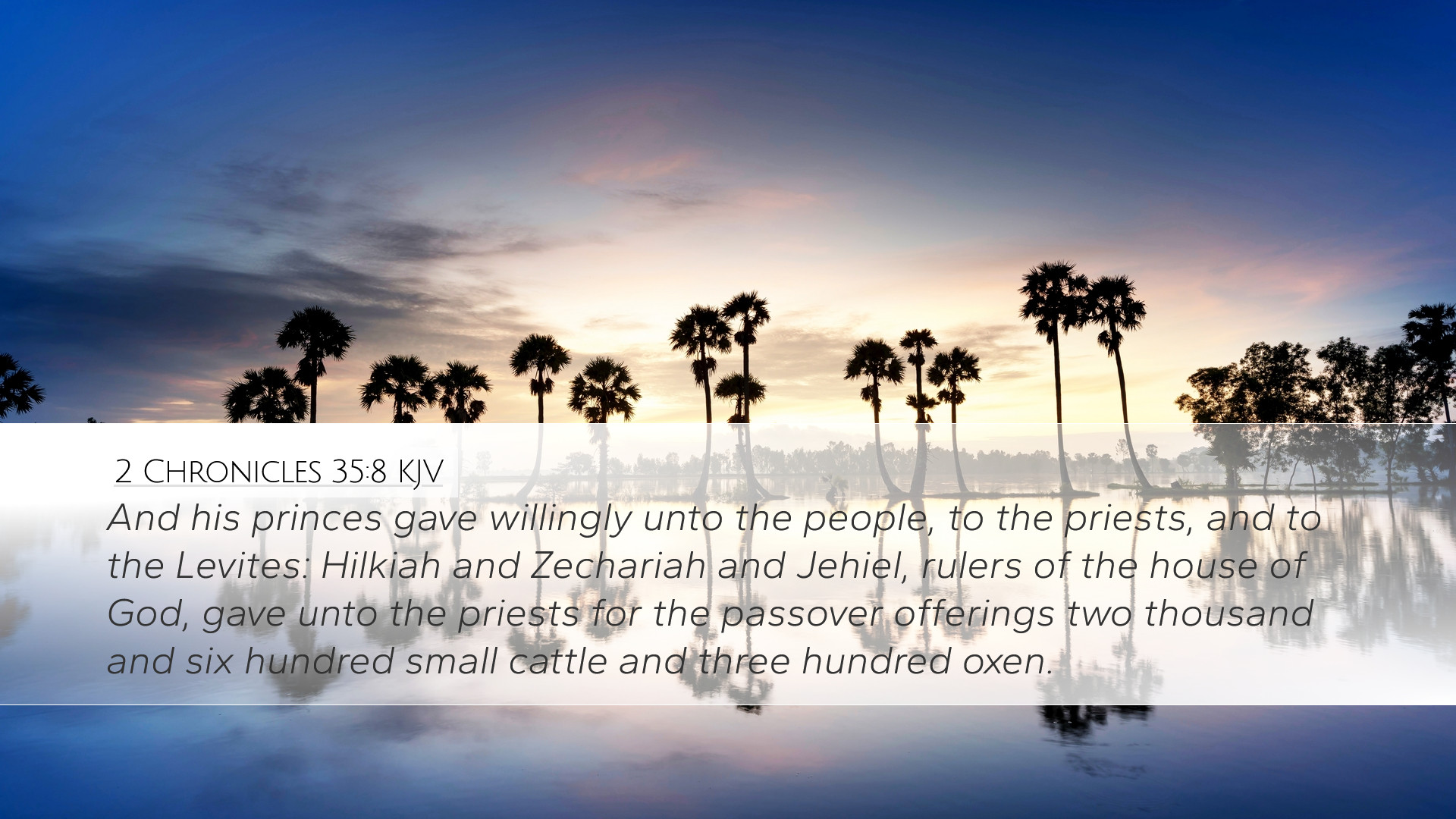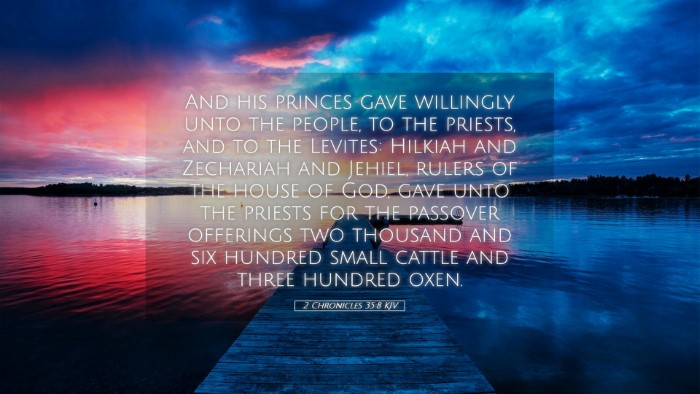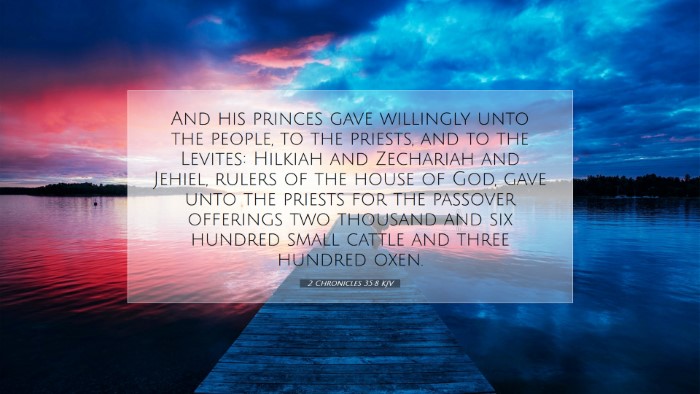Commentary on 2 Chronicles 35:8
2 Chronicles 35:8 provides significant insights into the nature of sacrificial offerings and the dedicated service of the people of God. This verse highlights the generosity of King Josiah in preparing for the Passover celebration, emphasizing the importance of worship and communal responsibility. The following commentary draws upon traditional interpretations and insights from esteemed biblical scholars such as Matthew Henry, Albert Barnes, and Adam Clarke to offer a comprehensive view of this verse.
Text of 2 Chronicles 35:8
“And his princes gave willingly unto the people, to the priests, and to the Levites: Hilkiah and his brethren gave unto the priests a thousand lambs and a thousand kids, and two thousand sheep; and the chief of the fathers gave willingly to the Levites.”
Key Themes and Insights
-
The Spirit of Generosity:
The verse indicates a collective spirit of generosity among the leaders and people gathered for the Passover. Matthew Henry remarks on the importance of willingness in giving, noting that true contributions to sacred observances stem from the heart. This act of giving was not coerced but occurred voluntarily, showcasing a deep commitment to worship.
-
The Role of Leadership:
The princely figures led by example, which is significant in ecclesiastical governance. Albert Barnes emphasizes that spiritual leadership should always model the attitudes and practices expected of the congregation. Leaders who exhibit selfless giving inspire others to participate in the life of faith.
-
Significance of Sacrificial Offerings:
The specific gifts of lambs, kids, and sheep highlight the importance of sacrificial offerings within the context of worship, as Adam Clarke notes. These offerings were essential for the celebration of the Passover, underscoring the rituals of atonement and thanksgiving that were foundational to Israelite worship.
-
Worship as a Community:
The passage illustrates that worship is not merely an individual act but a communal event. The involvement of the priests and Levites in managing the offerings reflects a collective identity within the covenant community of Israel. Each member had a role to play in the sacred festivities, reinforcing their shared heritage and faith.
-
Faithful Stewardship:
The mention of specific quantities of offerings denotes careful planning and stewardship. This act of giving was not random; it was thoughtful and purposeful. The leaders, exemplified by Hilkiah and his brethren, portrayed a model of stewardship that clergy and laity alike should aspire to emulate in their own contexts today.
Interpretive Reflections
As we delve deeper into this verse, it becomes evident that the elements of worship involve both heart and action—one cannot be separated from the other. The spontaneous and willing nature of the contributions stands as an enduring challenge for modern believers and congregations. It prompts questions of personal sacrifice, community involvement, and the motivation behind our acts of worship.
Application for Today's Church
In light of 2 Chronicles 35:8, church leaders today should foster a culture of willing giving where congregants feel inspired to contribute to the life of the church. This could mean more than just financial contributions; it could also involve time, service, and talents. When leaders exemplify generosity and commitment, it creates an environment ripe for growth and divine encounter.
Conclusion
The teachings surrounding 2 Chronicles 35:8 remind us of the essence of community worship, the importance of leadership in faith practices, and the nature of sacrificial giving. By understanding the context and meaning behind this verse, pastors, students, theologians, and Bible scholars can deepen their appreciation for the role of giving in worship. It ultimately points to the greater sacrifice made in Christ, calling believers to live lives marked by generosity and devotion.


